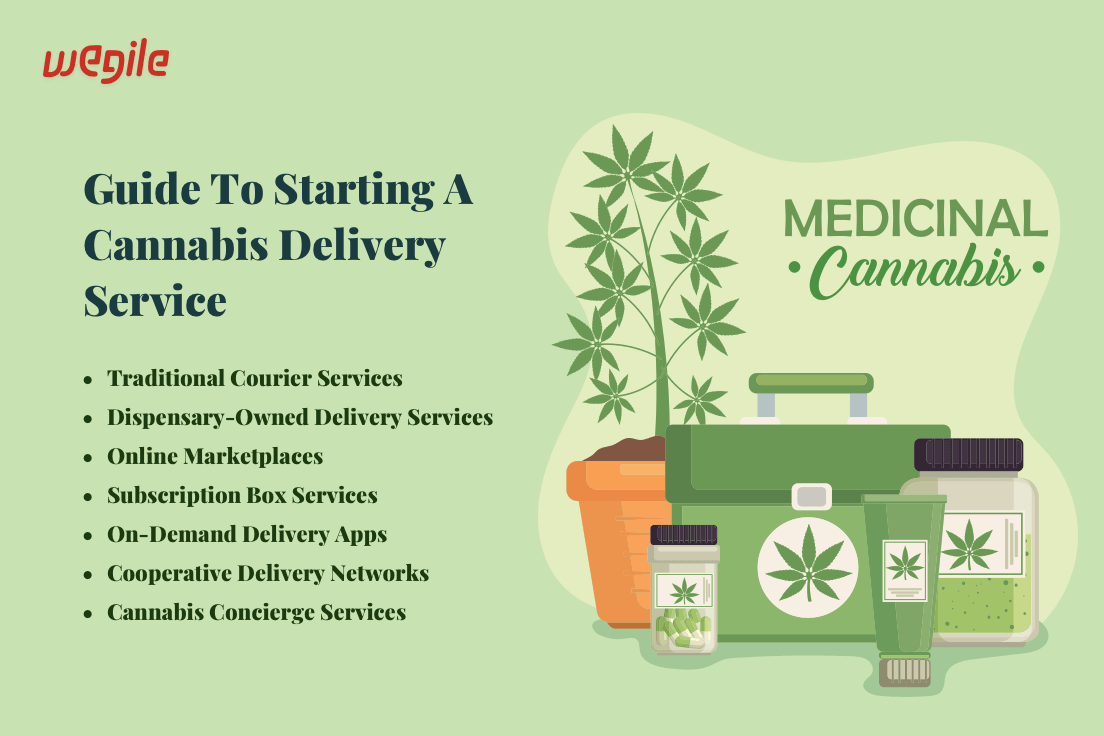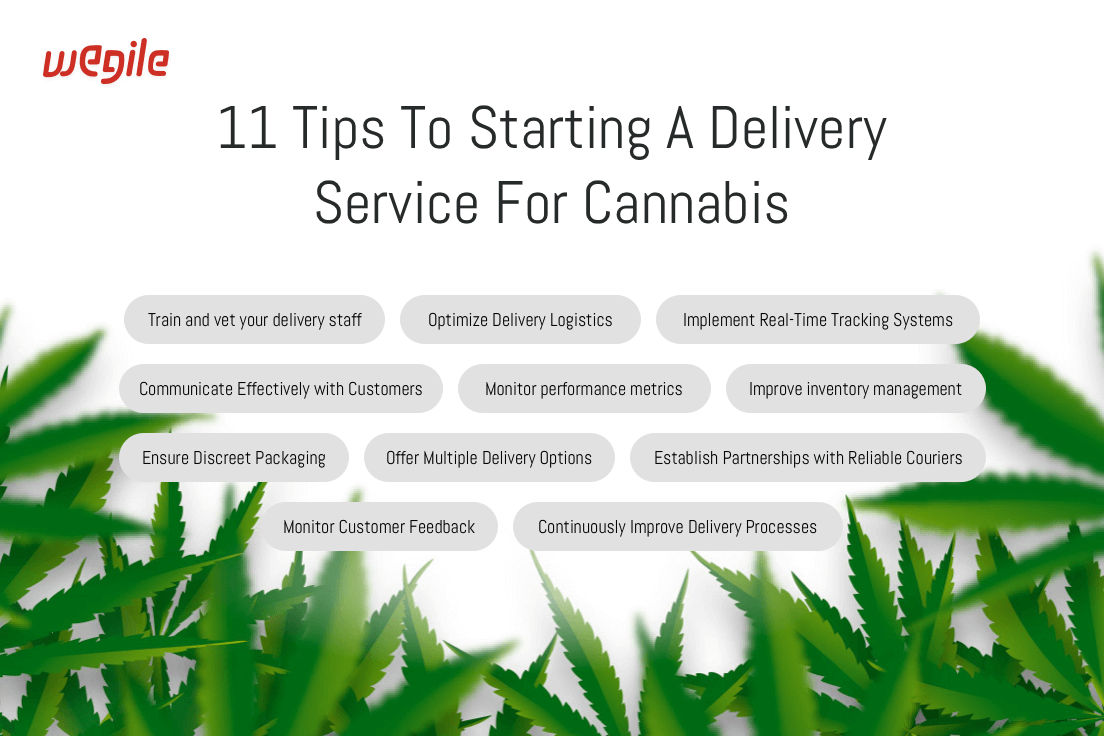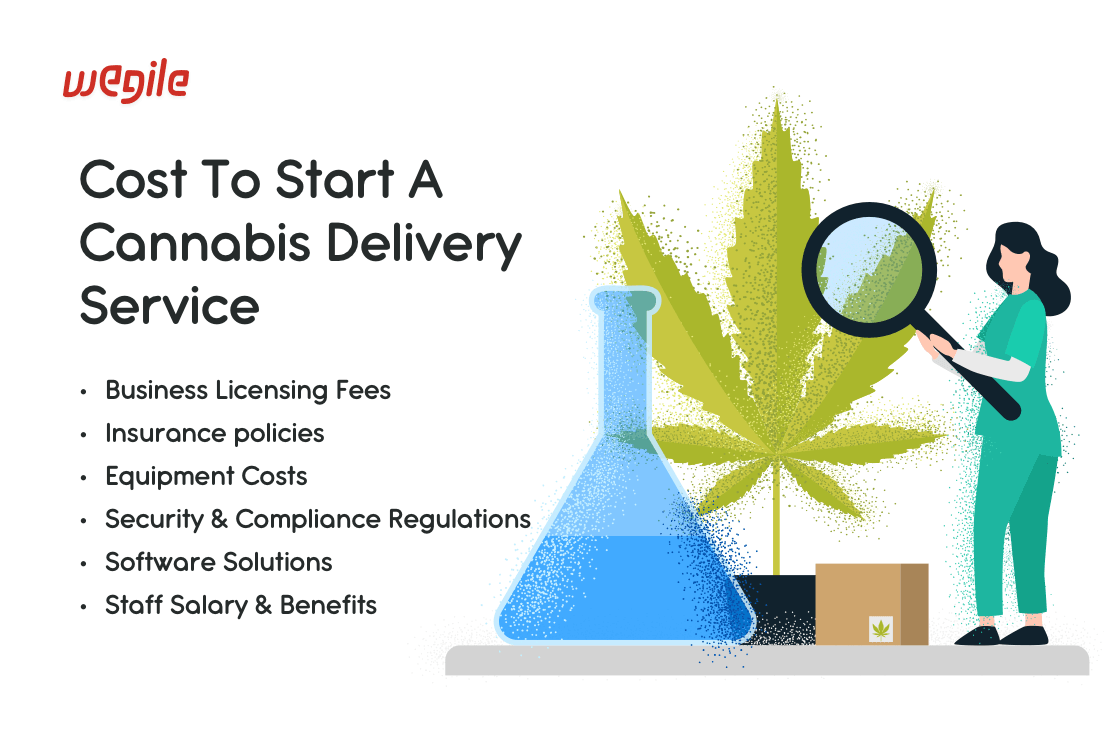The cannabis industry is bursting with growth and potential, with projections indicating that the legal marijuana market will hit a whopping $102.2 billion by 2030. This once-taboo sector has been embraced by the mainstream, drawing a wave of new businesses—and customers! Beyond retail outlets selling marijuana products, many are now turning to delivery services as an easy way to obtain their goods.
Cannabis delivery services offer convenience for those who may feel embarrassed or uncomfortable purchasing directly from stores; they provide access to a wider selection than some brick-and-mortar shops can carry; and even better? They guarantee discreet shipping so no one else needs to know what you’ve purchased - perfect for gifts (or yourself!). Ready to take the plunge into the thrilling world of cannabis delivery? Your journey starts here, and we're about to give you the insider's guide to how to start a cannabis delivery service and how much to start a cannabis delivery service; Let's get high on information right away!

Before we dive into answering the question of how to start a delivery service for cannabis or how to start a marijuana delivery service, let’s first focus on selecting the best cannabis delivery model for your business. This way, we can ensure that you keep on rollin happy customers.
Here is a list of some popular cannabis delivery models that are commonly used:
Many cannabis dispensaries partner with local courier companies to deliver products to customers. These services operate similarly to regular package deliveries.
Some cannabis dispensaries have their own dedicated delivery teams. They handle the entire process, from receiving orders to delivering products directly to customers’ doorsteps.
Online platforms have become increasingly popular for ordering cannabis products. These marketplaces connect customers with multiple dispensaries and offer a variety of delivery options.
Some companies offer subscription-based services where customers receive a curated selection of cannabis products regularly. Deliveries are typically scheduled on a monthly or quarterly basis.
Similar to food delivery apps, there are specific apps that focus on delivering cannabis products quickly and conveniently. Customers can browse different dispensaries and place orders through these platforms.
To get yourself the best mobile app developer for your cannabis delivery services, you can connect to Wegile right away. With our expertise in creating custom mobile apps, we can get customers blazing their way through checkout pages faster than ever before! So don't let a slow-moving beta launch put out your flame - when it comes to success with app development, count on us for a killer high every time. Take advantage of what's smokin' with Wegile and give users an experience they'll enjoy lighting up again & again!
In certain regions, cooperatives or collectives are formed by multiple dispensaries that collaborate to provide efficient and cost-effective delivery services to their shared customer base.
These premium services offer personalized assistance in selecting and delivering high-quality cannabis products directly to the customer’s location. They cater to individuals seeking more specialized care and guidance.
This is the first step to answering the question of how to start up a delivery service cannabis. Before using any of these services for cannabis delivery, it is crucial to research local laws and regulations in your area. Wegile is here to help you understand the cannabis delivery service and provide you with answers related to how to start a delivery service for cannabis.

To effectively address the question of how to start a delivery service for cannabis, it is crucial to follow a systematic approach. Here are some key steps to consider:
Provide comprehensive training to your delivery personnel, ensuring they understand the importance of professionalism, safety, and compliance. Train them on proper handling and transportation protocols for cannabis products, including security measures and age verification procedures.
Efficiently managing delivery logistics plays a vital role in ensuring timely deliveries. Evaluate your route planning and scheduling processes to minimize delays and optimize efficiency. Consider using technology solutions that can assist with route optimization.
Utilize tracking systems that provide real-time updates on the status of deliveries. This enables you to closely monitor the progress of each order, address any issues promptly, and keep customers informed about their deliveries.
Establish clear communication channels with customers and make sure to provide regular updates on their orders. Promptly address any concerns or questions they may have during the delivery process to enhance customer satisfaction.
Establish key performance indicators (KPIs) related to delivery operations, such as on-time deliveries, successful order completion rates, or customer satisfaction scores. Regularly monitor and analyze these metrics to identify areas of improvement and take appropriate actions.
Maintain efficient inventory management practices to avoid stockouts or incorrect orders. Regularly monitor stock levels, implement automatic reorder systems when necessary, and conduct periodic audits to ensure accuracy.
Maintain discreet packaging practices to uphold customer privacy and prevent any odors from emanating during transit. Employ reliable packaging materials that are both secure and scent-proof.
Provide customers with flexibility by offering different delivery options, such as same-day or scheduled deliveries. This allows them to choose a convenient time frame that suits their needs.
Actively monitor customer feedback regarding the delivery experience and take prompt action when necessary. Regularly assess customer satisfaction levels and use this feedback as an opportunity for improvement.
If outsourcing your delivery services, establish partnerships with reputable and reliable couriers. Conduct thorough due diligence to ensure they meet your standards for professionalism, reliability, and adherence to regulations.
Regularly assess and adapt your delivery processes to improve efficiency and reliability. Analyze data on delivery times, customer feedback, and operational metrics to identify areas for optimization and implement necessary changes accordingly.
By following these steps, you can effectively sort out delivery issues in a cannabis delivery service business while maintaining a professional approach toward customer satisfaction and compliance with industry regulations.

Thinking about starting a cannabis delivery service? It can be tricky to discern exact costs when getting started because they tend to vary from state to state. Here are some of the costs to start a cannabis delivery service:
Every US jurisdiction has different laws governing how businesses must obtain licenses for operating legally in their jurisdictions which often require certain fees or deposits. Here are the licensing fees set by the Department of Cannabis Control: Applications and License Fees.
Cannabis companies typically need specific insurance coverage that covers legal liability risks associated with selling marijuana, like product contamination/mislabeling, employee injury during transport, etc.
This includes vehicles, computers/technology tools (ePOS systems), communication equipment, etc.
It's essential that you comply with local regulations as well as safety standards such as security cameras or other measures against theft.
Delivery management solutions like web portals will need about $100-$200 per month, depending upon features chosen by the user.
The biggest single expense is bound to be salaries paid out to drivers, backend workers involved at the sorting center, etc.
Starting a cannabis delivery service requires careful planning and adherence to legal regulations. To begin, choose the best delivery model that aligns with your business goals and local laws. Next, obtain the necessary licenses and permits, ensuring compliance with all applicable regulations.
Develop a comprehensive business plan, including financial projections and marketing strategies. Secure reliable suppliers and establish efficient logistics for timely deliveries. Invest in proper training for staff members to ensure product knowledge and customer satisfaction. Lastly, promote your service through strategic marketing efforts to attract customers. By following these steps, you can successfully start a professional cannabis delivery service.


 Browse Our Services
Browse Our Services
